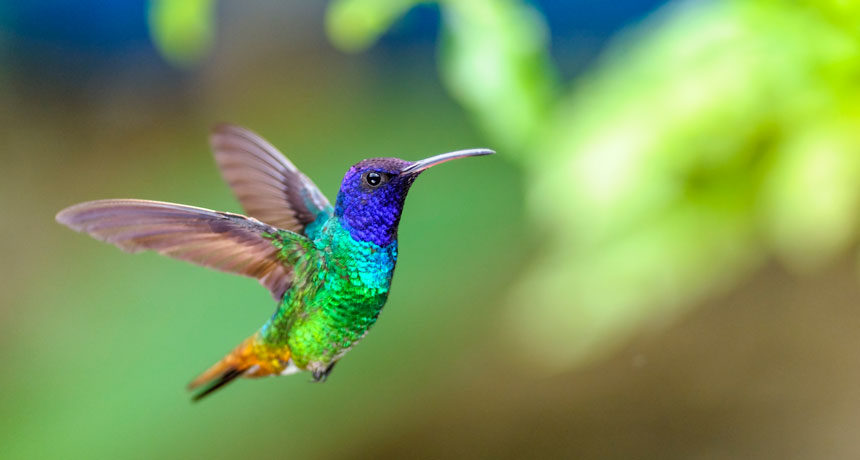bat A type of winged mammal comprising more than 1,100 separate species — or one in every four known species of mammal.
birds Warm-blooded animals with wings that first showed up during the time of the dinosaurs. Birds are jacketed in feathers and produce young from the eggs they deposit in some sort of nest. Most birds fly, but throughout history there have been the occasional species that don’t.
hibernation A state of inactivity that some animals enter to save energy at certain times of year. Bears and bats, for example, may hibernate through the winter. During this time, the animal does not move very much, and the use of energy by its body slows down. This eliminates the need to feed for months at a time.
mammal A warm-blooded animal distinguished by the possession of hair or fur, the secretion of milk by females for feeding the young, and (typically) the bearing of live young.
rodent A mammal of the order Rodentia, a group that includes mice, rats, squirrels, guinea pigs, hamsters and porcupines.
torpor A state of decreased activity in an animal. During torpor, an animal’s body temperature decreases and its cellular activity slows down.

